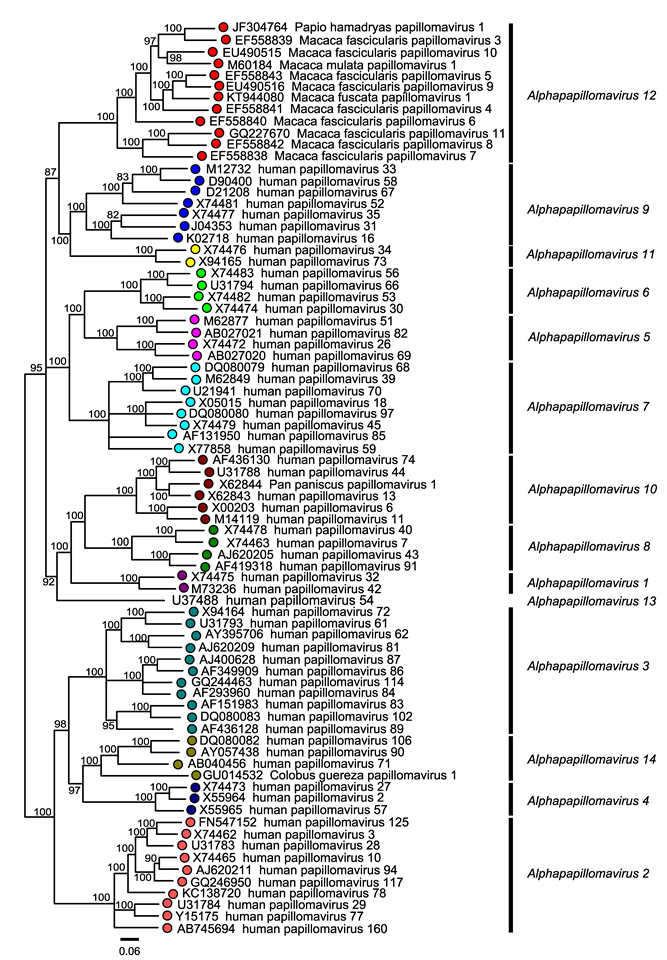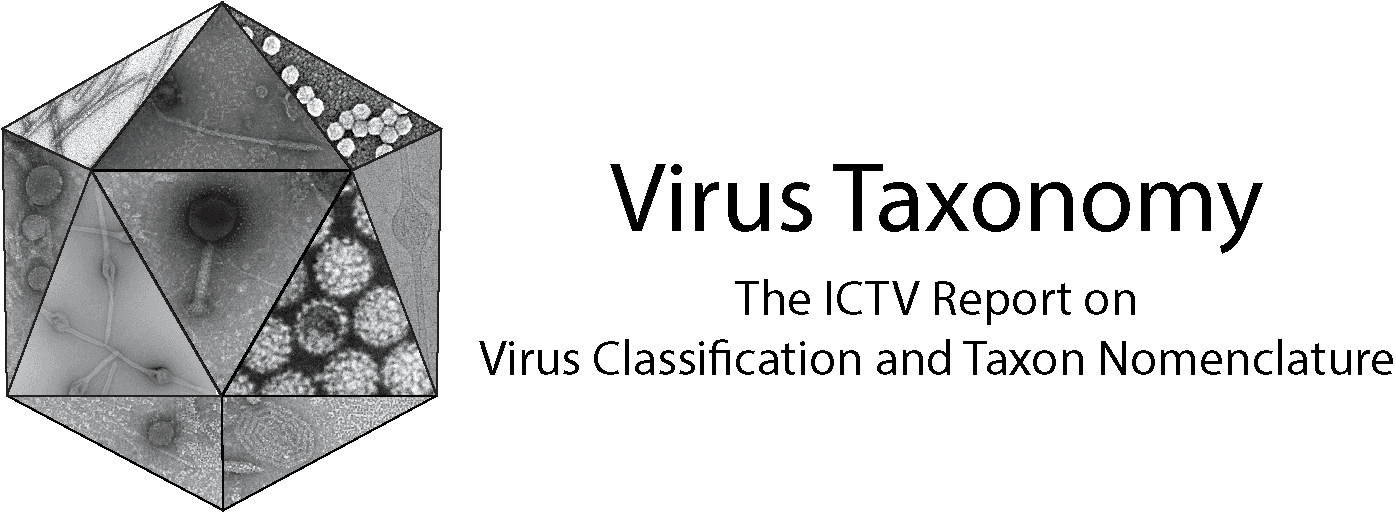Subfamily: Firstpapillomavirinae
Genus: Alphapapillomavirus
Distinguishing features
Members of this genus preferentially infect the oral or anogenital mucosa in humans and primates. Members of certain species (e.g. Alphapapillomavirus 2 and Alphapapillomavirus 4) are also found in lesions of cutaneous sites. Specific members of certain species (e.g. Alphapapillomavirus 7 and Alphapapillomavirus 9) are considered as oncogenic in view of their regular presence in malignant tissue. All members of this genus code for a hydrophobic E5 protein, located at the 3′-end of the early region.
Virion
See discussion under family description.
Genome organization and replication
See discussion under family description.
Biology
See discussion under family description.
Species demarcation criteria
Putative novel papillomavirus genome with complete genome sequence data available and that is <70% nucleotide identity across the L1 ORF to papillomaviruses within the genus (Figure 1. Alphapapillomavirus).
 |
| Figure 1. . Alphapapillomavirus. Phylogenetic tree of members of the genus Alphapapillomavirus. The E1, E2, L2, and L1 nucleotide sequences of 343 papillomavirus isolates including representatives of all species and genera within the Papillomaviridae family were aligned as amino acid sequences using MUSCLE v7.221 (Edgar 2004). JModeltest2 (Darriba et al., 2012) was used to determine the optimal model of evolution (GTR + I + G) for the concatenated nucleotide sequences. Maximum likelihood (ML) trees were constructed using RAxML MPI v8.2.9 (Stamatakis 2006) implementing the GTR substitution model. ML bootstrap analysis used the autoMRE-based stopping criterion in RAxML. Following tree construction (tree available in the Resources section of the Papillomaviridae Report), the subtree corresponding to the genus Alphapapillomavirus was isolated. Tips are labelled with virus names and accession numbers; nodes are labelled with bootstrap support values. |
Related, unclassified viruses
|
Virus name |
Accession number |
Virus abbreviation |
|
human papillomavirus mEV06c12b |
HPV-mEV06c12b |
Virus names and virus abbreviations are not official ICTV designations.

